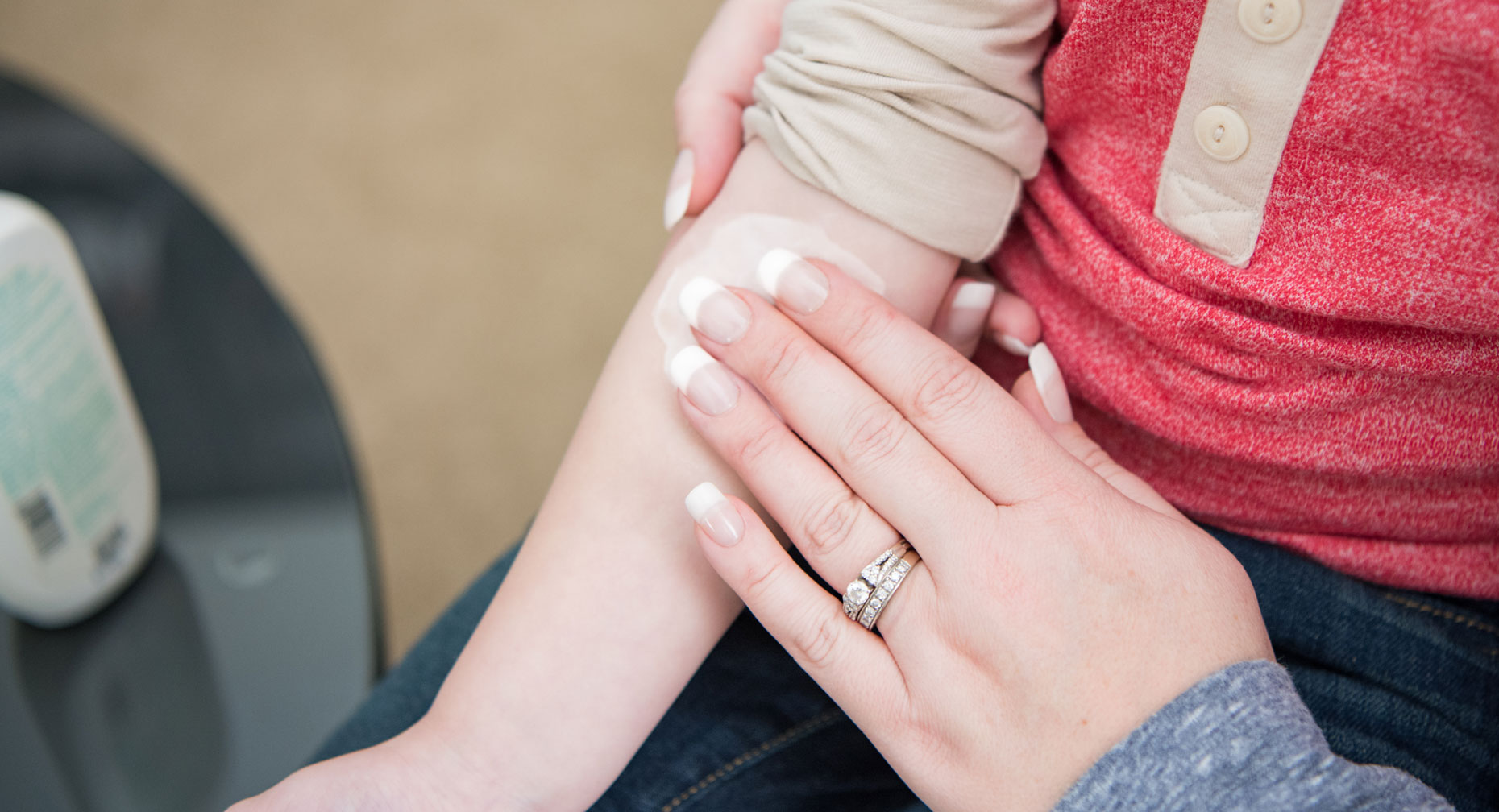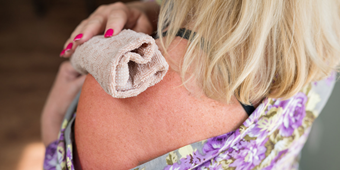Have Eczema? 6 Tips to Manage that Rough Patch

Answer a few questions and we'll provide you with a list of primary care providers that best fit your needs.
Is your skin feeling painful, itchy or rough? If so, you may have eczema, a very common skin condition that affects roughly 30 million Americans, according to the National Eczema Association. Eczema is the name for a group of conditions that cause the skin to become red, itchy and inflamed, including atopic dermatitis, a severe and long-lasting form of eczema.
What are the Symptoms?
The most important thing to remember is that eczema and its symptoms are different for everyone. Your eczema may not look the same on you as it does on another adult, or on your child. It may even appear in different areas of the body at different times.
- Severe itchiness
- Small bumps, scratch marks or swelling
- Sensitive skin
- Red, inflamed skin
- Scaly patches of skin
- Oozing or crusting
Where Do Eczema Symptoms Usually Show Up?
Did you know that the parts of the body affected by eczema may change with age? Typically, for babies and young children, eczema shows up in these places:
- The face
- The outside of the elbows
- On the knees
In older children and adults, symptoms usually appear in these places:
- Hands and feet
- Arms
- Back of knees
- Folds of the elbow
If you have eczema, you’ve probably had it since you were a baby or small child. That’s because most signs of the condition show up during the first year of life. Even though it’s possible for eczema to show up for the first time in adults, it only does so rarely.
The most important thing to remember is that eczema and its symptoms are different for everyone.
What Causes Eczema?

The exact cause of eczema is unknown. But we do know that it seems to run in families and that certain triggers seem to make eczema worse. It’s not contagious, so you can’t catch it from someone else.
Eczema triggers might include the following:
- Stress
- Hot or cold temperature
- Dry conditions
- Certain fabrics or detergents
How Can I Manage or Treat Eczema?
If you have eczema, you might be able to control symptoms by managing your environment. If you need more relief, medication can help. Here are six tips to help manage eczema pain:
- Manage the stress in your life
- Hot or cold temperatures can cause flare-ups, so try to limit your exposure to extreme weather.
- Dry conditions can make skin affected by eczema feel even drier — so use a humidifier if your house or office air is very dry.
- Reduce your exposure to dust, especially in your house
- Know that pet hair and dander can cause flare-ups.
- Depending on the severity of your symptoms, you might need medication. Talk to your doctor or health care provider to see which option (or combination of options) is right for you. Your treatment plan may include topical treatments, oral medicines or even antibiotics.
Answer a few questions and we'll provide you with a list of primary care providers that best fit your needs.
Source: National Institute of Arthritis and Musculoskeletal and Skin Diseases; National Eczema Association




